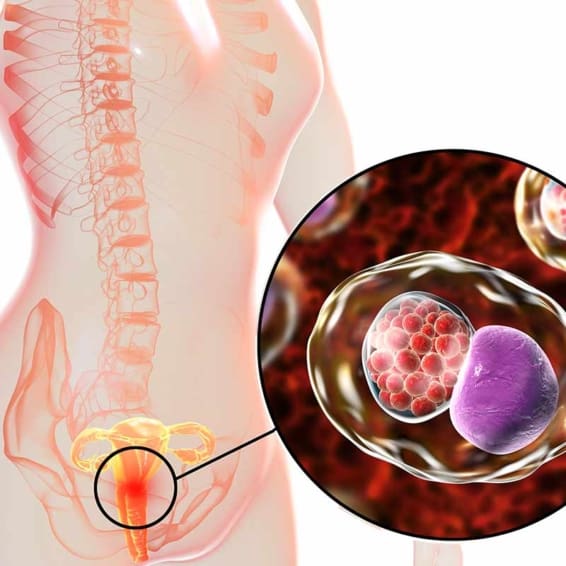
What is chlamydia?
Chlamydia (Chlamydia trachomatis) is a sexually transmitted infection (STI). STIs also are known as sexually transmitted diseases (STDs). Chlamydia is a bacterial infection that can occur in any person. Chlamydia can be passed on to newborn babies during delivery.
Symptoms of chlamydia
Chlamydia often doesn’t produce symptoms, especially early on. Most people don’t know they have it. Symptoms may appear 1 to 3 weeks after exposure to the bacterial infection. These can include:
- Pain or burning during urination
- Lower abdominal pain
- Painful sexual intercourse
- Genital discharge
- Irregular periods
- Testicular pain
- Rectal pain, discharge, or bleeding
- Reactive arthritis (pain and inflammation of the joints that develop from an infection)
At its worst, chlamydia can affect fertility, making it difficult to get pregnant. It can sometimes cause an ectopic pregnancy (fertilization that develops outside the womb). Ectopic pregnancies are serious and can be life-threatening.
What causes chlamydia?
Chlamydia is caused by engaging in unprotected sexual activity (vaginal, anal, and oral) with a person who has the infection. It also can spread by touching an infected person’s genitals.
How is chlamydia diagnosed?
Your doctor can easily diagnose chlamydia. They may order a urine test. This involves peeing in a cup provided by the doctor’s office. The urine sample is sent to a lab to be tested. Your doctor may want to take a sample of bacteria. This involves taking a sample from your genitals with a swab to test.
If you are pregnant, your doctor will check for chlamydia even if you have no signs of the disease. This infection can be extremely dangerous to a newborn.
Can chlamydia be prevented or avoided?
You can reduce your risk of chlamydia by always using protection properly during sexual activity. Using it incorrectly can lessen this protection. Limit your number of sexual partners. Know the people with whom you have sexual contact, since the disease can also spread by touching your partner’s genitals. If you use spermicide for birth control, be aware that they contain nonoxynol-9 which can cause genital irritation. This can increase your risk of STIs.
Women ages 25 and younger who are sexually active should be screened for STIs by their doctor on a regular basis. Women also should avoid douching (a form of vaginal hygiene). It reduces the “good” bacteria in the vagina and increases the risk of infection.
If you have chlamydia, you should tell anyone you have sexual contact with. If your partner has chlamydia or another STI, you should be tested right away.
Chlamydia treatment
Chlamydia can be treated with antibiotic medicine. Your doctor will prescribe either a single-dose pill or a several-day course of the same pill taken by mouth. Your partner also needs to be tested and treated. Tell your doctor if you are allergic to any type of antibiotic. Finish taking your entire antibiotic. Do not engage in sexual contact again until 7 days after you finish the medicine. Tell your doctor if you get a fever or stomach pain while taking the medicine. Also, tell your doctor if you are or might be pregnant.
Living with chlamydia
If left untreated, chlamydia can spread to different parts of your body. This can cause additional harm. For example, if it spreads to your eyes, it can cause eye infections and blindness. If chlamydia spreads to the testicles and prostate, it can cause swelling, painful urination, fever, and lower back pain. The infection can also spread to the uterus and fallopian tubes (part of the female reproductive system). This can cause scarring in the area, as well as infertility or difficulty becoming pregnant. It may cause an ectopic pregnancy. If chlamydia is passed on to a newborn baby through a vaginal delivery, it can cause pneumonia, an eye infection, and even blindness in the baby.
Questions to ask your doctor
- How long does chlamydia last?
- Can chlamydia come back once it’s been treated?
- Can antibiotics repair any damage from chlamydia?
- Is there any type of preventive medicine that can be taken before exposure to the disease?
Resources
Centers for Disease Control and Prevention: Chlamydia-CDC Fact Sheet
National Institutes of Health, MedlinePlus: Chlamydia Infections
![]()
Copyright © American Academy of Family Physicians
This information provides a general overview and may not apply to everyone. Talk to your family doctor to find out if this information applies to you and to get more information on this subject.






